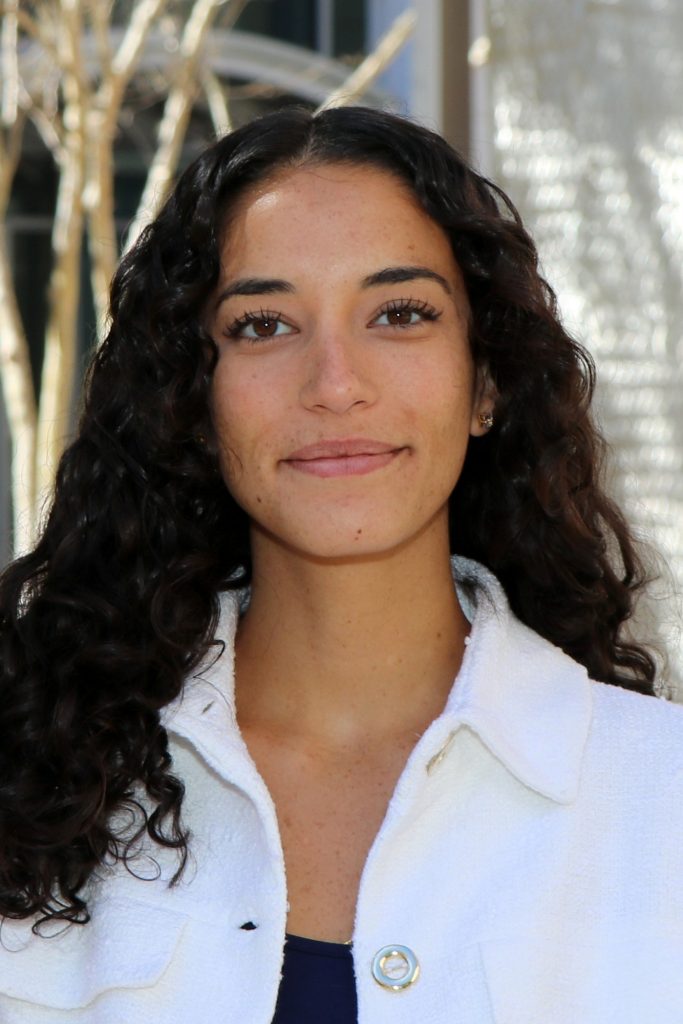By Ines Aviles-Spadoni, M.S., M.A., UFTI Research & Communications Coordinator
Many students pursue a doctoral degree because they wish to deepen their knowledge, contribute to enhancing the state of the art and make some sort of meaningful impact in their chosen field. For Isabelle Wandenkolk, that desire led her to explore how to use technology to make transportation more efficient, safer and accessible.
“My research sits at the intersection of transportation and technology integration, where I aim to leverage emerging innovations to improve mobility systems,” Wandenkolk said. “Transportation influences public health, equity, and everyday quality of life. Having observed firsthand the disparities in mobility access and the safety challenges faced by underserved communities, I see technology as a transformative tool to bridge these gaps.”
Wandenkolk has a master’s degree in public health and graduated in 2024 with a doctoral degree in rehabilitation science, a specialization within UF’s Department of Occupational Therapy. She is now working as a postdoctoral researcher at the University of Massachusetts-Amherst (UMass).
Although her doctoral studies at UF were based in occupational therapy (OT), she focused her dissertation on autonomous shuttles and veteran mobility, which placed her in the transportation technology sphere.
Wandenkolk’s work, supported by UF-OT’s Institute for Driving, Activity, Participation, and Technology (I-DAPT) program and the Veteran’s Administration (VA), looked at how veterans perceive and interact with autonomous transportation to find out how this technology could improve mobility for them. The I-DAPT program is led by Sherrilene Classen, professor and chair of the UF Department of Occupational Therapy, an affiliate of the UFTI.
“We are privileged to be studying how autonomous ride-sharing services may be benefitting Veterans over time,” Classen said. “Much needs to be done, and this study was one of many others that laid the foundation for examining and synopsizing veteran-centric perspectives that may move deploying autonomous shuttles for veteran use in the VA forward.”
Four papers were developed as a result of Wandenkolk’s work on this topic, one of which was recently published, with the remaining papers currently under review and one scheduled for submission by the end of February 2025.
The published paper “Veterans’ Perceptions of Shared Autonomous Electric Shuttles: A Pre- and Post-Exposure Assessment” assessed veterans’ perceptions of autonomous shuttles across four Florida cities before and after exposure. The results of this study showed that exposure to autonomous shuttles increased acceptance and intention to use and decreased perceived barriers among the veterans who participated in the study.
“This study was particularly important in understanding how direct exposure to autonomous shuttles can shift perceptions, especially among populations that may initially be hesitant about this technology,” Wandenkolk said. “Veterans represent a unique user group with diverse mobility needs, and our findings show the role of experiential learning in fostering greater acceptance in autonomous ride-sharing services.”
Wandenkolk’s research has real-world implications in transportation safety, public health, and human factors engineering. Her work can help policymakers and industry create user-centered mobility solutions and designs for older veterans and people with disabilities. As a post doc at UMass-Amherst, Wandenkolk is working at the Human Performance Laboratory affiliated with UMass’s Department of Mechanical and Industrial Engineering, and she credits her education at UF for preparing her well in her current role.
“The education and mentorship I received during my doctoral studies, particularly centered on quantitative and qualitative methodology, aligned with the postdoc position,” she said. “My mentors also played a key role in identifying opportunities and recommending me as a candidate for postdoctoral positions.”
For graduate students seeking a similar path, Wandenkolk advises them to develop lots of research experience, publish and engage in interdisciplinary collaborations.
“I recommend building a strong research portfolio with publications and presentations, as well as actively networking with experts in your field,” she said. “Seeking interdisciplinary collaborations and gaining experience with grant writing and research methodologies are also key.”
Wandenkolk’s desire to deepen her knowledge at the intersection of transportation and technology integration, particularly with autonomous shuttles showed how interdisciplinary research can help to shape the future of transportation safety and accessibility.


